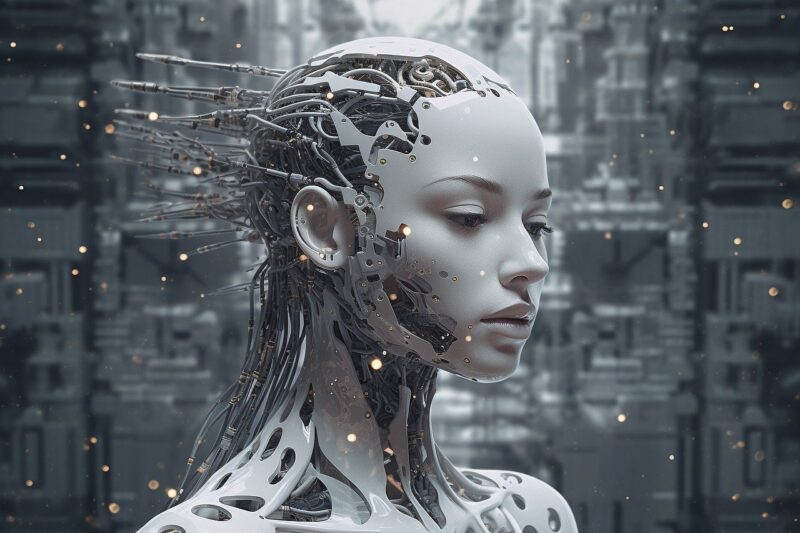Unlocking the Potential of Artificial Intelligence in Everyday Life
November 17, 2024

Artificial Intelligence (AI) has rapidly moved from the realm of science fiction into our everyday lives, subtly transforming the way we live, work, and communicate. From smart assistants in our homes to advanced algorithms in our mobile applications, AI is now an integral part of modern life. Understanding the impact of AI can help us harness its potential for improving our daily routines, making informed decisions, and enhancing productivity.
1. What is Artificial Intelligence?
At its core, Artificial Intelligence refers to the ability of machines to perform tasks that typically require human intelligence. These tasks include problem-solving, learning, perception, and language understanding. AI technologies can be broadly classified into two categories: narrow AI and general AI. Narrow AI is designed to perform specific tasks (like virtual assistants), while general AI refers to machines that possess the ability to perform any intellectual task that a human can do. However, achieving true general AI remains a long-term goal.
2. AI in Daily Life: Practical Applications
Artificial Intelligence is already deeply embedded in countless aspects of our lives. Here are several ways AI technology is applied, enhancing our everyday experiences:
- Smart Assistants: Devices like Amazon Alexa, Google Assistant, and Apple’s Siri use natural language processing (NLP) to understand and respond to voice commands. From managing your calendar to controlling smart home devices, these assistants simplify our daily tasks.
- Personalized Recommendations: AI algorithms analyze user data to offer personalized suggestions on platforms like Netflix, Spotify, and Amazon. This personalization increases user engagement by curating content tailored to individual preferences and behaviors.
- Smart Home Devices: AI-driven devices such as smart thermostats and security cameras optimize home comfort and safety. They learn user preferences over time, adjusting settings automatically to improve efficiency and security.
- Healthcare Innovations: AI is revolutionizing healthcare through predictive analytics, disease detection, and personalized medicine. From diagnostic tools to patient management systems, AI enhances treatment precision and efficiency, ultimately improving patient outcomes.
- Autonomous Vehicles: The development of self-driving cars relies heavily on AI technologies, including machine learning and sensory data processing. These vehicles promise to increase road safety, reduce traffic congestion, and lower emissions as they become more mainstream.
Understanding these applications can illuminate the pervasive impact AI has on our routines and decision-making processes.
3. Benefits of AI Integration in Everyday Life
Integrating AI into everyday tasks yields numerous benefits, including:
- Increased Efficiency: AI-powered tools automate repetitive tasks, allowing individuals to focus on more complex activities that require creativity and critical thinking.
- Enhanced Decision-Making: By analyzing vast amounts of data quickly, AI models help individuals and organizations make data-driven decisions that enhance productivity and reduce resource wastage.
- Improved Accessibility: AI technologies, such as speech recognition and text-to-speech systems, help improve accessibility for individuals with disabilities, promoting inclusivity in various aspects of life.
- Cost Savings: Businesses leveraging AI can often reduce operational costs through automation and improved efficiencies, savings that may translate into lower prices for consumers.
The benefits are compelling, emphasizing how AI can be a catalyst for positive change in our daily lives.
4. Best Practices for Using AI Responsibly
While the integration of AI brings significant advantages, it’s essential to use these technologies responsibly. Here are some best practices:
- Be Informed: Understand how AI tools collect and use your data. Being informed enables users to make better decisions regarding privacy and consent.
- Limit Over-dependence: While AI can enhance productivity, it’s vital not to become overly reliant on automation for decision-making. Maintain a balance between AI assistance and human judgment.
- Encourage Ethical AI Practices: Support developers and companies that prioritize ethical AI practices, including fairness, accountability, and transparency in AI systems.
Being responsible about AI use ensures that these powerful tools enhance our lives without compromising our values and ethics.
5. The Future of AI in Everyday Life
As AI continues to evolve, its role in everyday life is projected to expand significantly. Future advancements may include:
- More Contextual Awareness: Future AI systems will likely become more contextually aware, allowing them to provide more relevant and timely information tailored to user needs and environments.
- Enhanced Collaboration: AI technologies may increasingly collaborate with humans, leading to new workflows and improved creativity across various fields, including art, science, and education.
- Integration with IoT: As the Internet of Things (IoT) grows, AI will play a crucial role in managing intelligent devices, leading to seamless control of our environments and improving efficiency at all levels.
These advancements highlight the potential for AI to not only enhance our existing routines but also to revolutionize how we engage with the world around us.
Conclusion
Artificial Intelligence is not just a futuristic dream but a present reality, deeply integrated into everyday life. As we navigate its advantages and challenges, it’s important to remain informed and responsible users of AI technology. By recognizing its potential and leveraging it wisely, we can unlock new opportunities for enhancement and productivity in our daily routines. As AI continues to evolve, so too will its role in shaping our future, enabling us to create a more efficient, enjoyable, and connected world.







